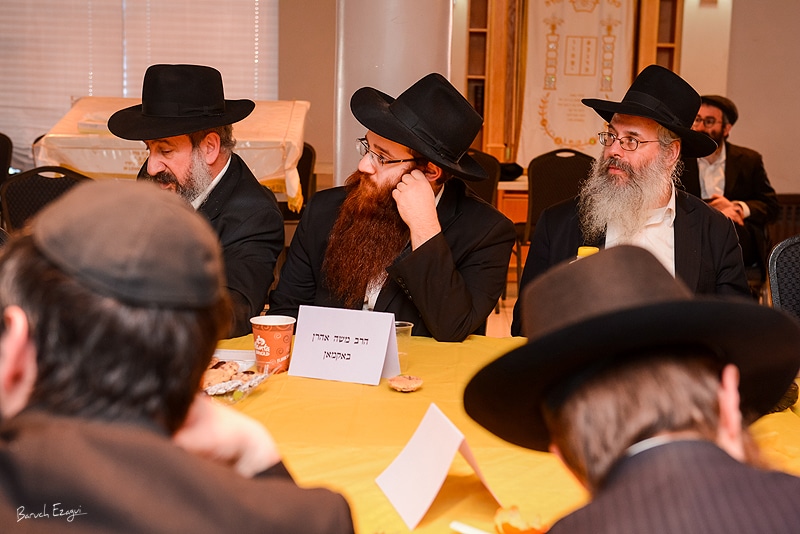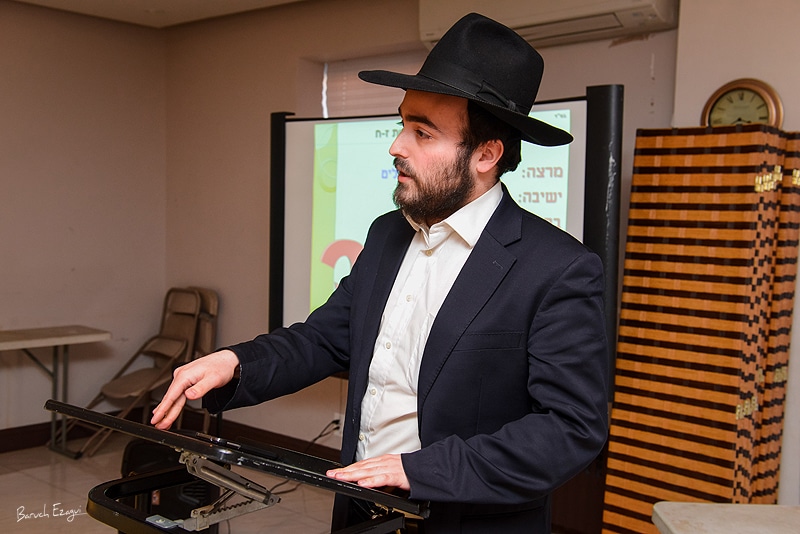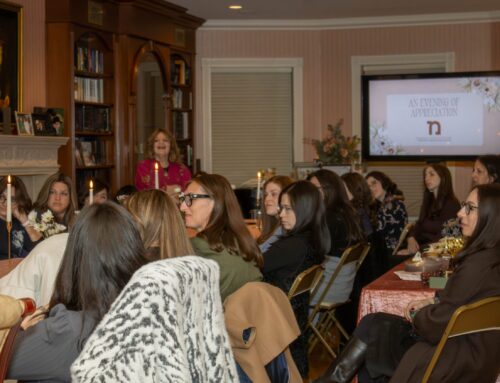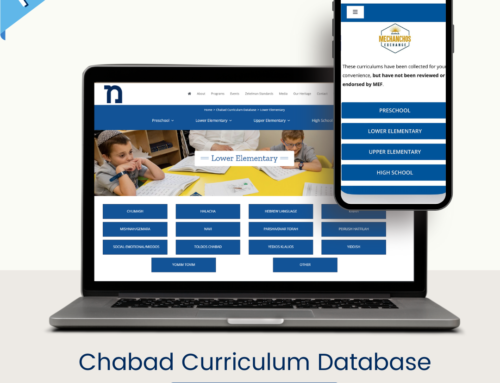A Hakhel of Teachers: United for Chinuch
Teachers are at the forefront of bringing children together in their classrooms in the true spirit of Hakhel each day. Now it was their turn. In a unique series of events this past month, teachers from a range of Crown Heights schools joined fellow teachers of their grade level in a special Hakhel program that allowed them the opportunity to connect, network and be inspired.
On various Sunday afternoons beginning in late January, Rebbeim of specific grade levels gathered in Crown Heights to discuss their experiences and challenges in Chinuch. Organized by the Menachem Education Foundation, the events were part of a unique initiative that was started earlier this year to unite educators and celebrate their vital role in the community. In November, nearly a dozen Crown Heights principals gathered to connect over their shared roles as educational leaders in the community and with their support, the events aimed at connecting teachers were soon developed.
The four events to date each focused on a specific grade level – Pre1A, 1st and 2nd, 5th and 6th and 7th and 8th* – where teachers from those grades joined their peers in other schools to share best practices and challenges in teaching their age group. Using a format of “for the teachers, by the teachers”, each Hakhel had presentations by the Rebbeim themselves, who hailed from Oholei Torah, Lubavitcher Yeshiva, Ohr Menachem, Darchei Menachem, Yeshiva Chok L’Yisroel, and ULYOP. Each gathering brought together an average of 20 teachers from each grade level.
Rabbi Shmuly Shneur of Lubavitcher Yeshiva, who helped facilitate the events, explained that the organizers specifically didn’t bring in an outside speaker to address the teachers, as the purpose of the Hakhel was to facilitate peer-to-peer collaboration and networking.
“There are no real opportunities out there for all the educators in our different schools to share and discuss their important work with each other,” explains Shneur. “Even within schools, teachers don’t always have access to their peers who work with the same age group.”
The goal of the events was to create a forum where the teachers could share and gain from each other’s strengths, experience, wisdom, and energy. In most of the events, three teachers were chosen to present on different topics that were then discussed in depth by the group.
“In Pre1A, for example, all the teachers want to teach Kriah in the best way. In other classes, they focused on classroom management or teaching to different student’s abilities,” explains Shneur. Though the different schools teach in different contexts, he says, the basics are the same as all “want to reach their students in the best way.”
In the session for Mesivta teachers, each attendee presented their own challenge or idea to the group, bringing up relevant issues and crowdsourcing feedback and suggestions from their peers.
“I have been working for ten years,” says Rabbi Levi Feldman of Oholei Torah, who facilitated the 7th and 8th grade event. “This was the first time I was in the same room with so many other 7th and 8th grade teachers who were all doing the same work and facing similar challenges. We were a bunch of isolated islands all doing parallel work and bringing us together in a meaningful way was very powerful.”
The feedback from teachers has been very appreciative, with one participant calling it “the best educational event I ever went to.” Shneur says that the format allowed teachers to realize that they themselves had a lot to offer their peers and ignited a desire to continue working together as unified group to improve their teaching. While many walked away inspired with practical takeaways and tips to implement in their classroom, the unanimous response has been the need for more such events that promote a spirit of collaboration and camaraderie.
*The event for 3rd and 4th grade teachers was canceled due to a recent snowstorm and is yet to be rescheduled.







